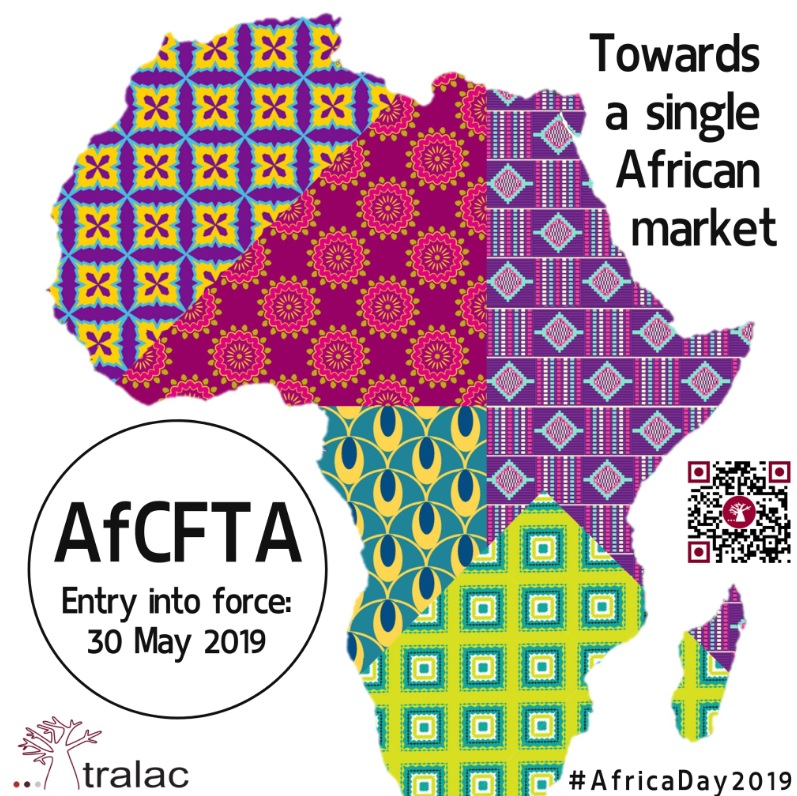AfCFTA’s effectiveness creates more economic, trade ties with China

- Country:
- South Africa
The African Continental Free Trade Area Agreement that takes effect on May 30 will help forge closer economic and trade ties with China, according to Chinese ambassador to the African Union.
China welcomes progress in building the free trade area, support Africa to advance interconnectivity and is ready to work with Africa to promote the free trade regime, said Liu Yuxi, head of the Chinese Mission to the African Union (AU).
"Unimpeded trade and facilities connectivity are the core content of the joint construction of the Belt and Road by China and Africa," Liu said, adding that "the two sides are expected to build closer economic and trade ties by developing the free trade area and promoting the Belt and Road cooperation."
China has been Africa's biggest trading partner for 10 consecutive years, with an accumulated investment of more than USD 110 billion in the continent.
Positive results have been achieved in the joint construction of the Belt and Road in recent years. China has signed memorandums of understanding with 39 African countries and the AU Commission. Cooperation with China has substantially advanced Africa's economic and social development.
The Belt and Road Initiative, proposed by China in 2013, refers to the Silk Road Economic Belt and the 21st Century Maritime Silk Road which are designed to build a trade and infrastructure network connecting Asia with Europe, Africa and beyond.
The AfCFTA Agreement was approved by 22 countries last month, meeting the minimum threshold for it to take effect and is set to enter into force on May 30. It has laid the foundation for what could be the world's largest free trade zone by the number of participating countries, covering more than 1.2 billion people with a combined gross domestic product of 2.5 trillion dollars.
"It is a milestone in Africa which has in recent years been upholding the banner of unity and promoting economic integration," Liu said. The agreement is expected to promote the free flow of commodities, services, capital and people, by lowering tariffs and trade barriers, which is of great significance for Africa's economic transition and enhancing its status in global trade and value chain.
Given the rising sentiment of anti-globalization, protectionism and unilateralism, the AfCFTA will boost global trade facilitation and liberalization, and inject new impetus to promoting an open world economy, the ambassador said, as reported by Xinhua.
He highlighted Chinese companies' contribution to the development of China-Africa relations, saying the African Continental Free Trade Area Agreement (AfCFTA) will inject new vitality into upgrading bilateral cooperation and improving its quality and efficiency.
China and Africa are implementing the outcomes of the 2018 Beijing Summit of the Forum on China-Africa Cooperation and the Belt and Road cooperation, Liu said, adding that China is willing to share development opportunities with Africa and help Africa accelerate industrialization, urbanization and agriculture modernization, in order to achieve win-win results and common development. The Chinese diplomat also said that in recent months, the China-U.S. trade frictions have drawn the attention of the whole world, including African countries, as reported by Xinhua.
China stands firm to safeguard economic globalization and free trade, and is committed to building an open, stable, fair and transparent global trade environment, said Liu, adding that China is willing to work with African countries and other developing nations to jointly build an open global economy and strive for a community with a shared future for mankind.
Also Read: Masaka Hospital in Rwanda receives medical supplies from China
ALSO READ
Congress Tightens Grip on China Investments
Congress Targets China Investments in Security-Driven Legislation
Historic Diplomatic Talks: India and China Aim to Rebuild Ties
National Security Advisor Ajit Doval holds talks with China's Foreign Minister Wang Yi under Special Representatives mechanism.
Youth Unemployment Declines in China: Positive Trends Emerge










